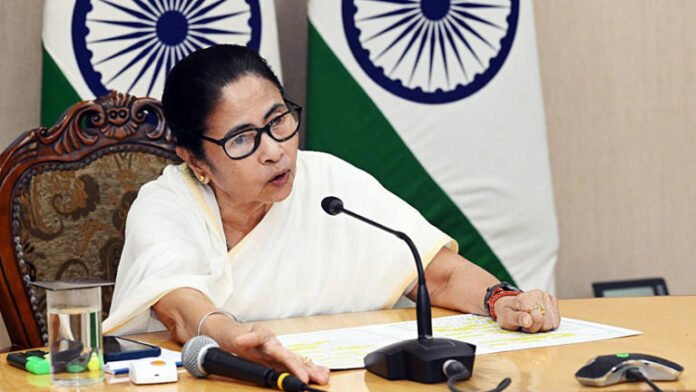West Bengal Chief Minister Mamata Banerjee has strongly addressed provocative statements made by a Bangladeshi politician from the Bangladesh Nationalist Party (BNP) claiming territorial rights over Indian states Bengal, Bihar, and Odisha. Speaking in the West Bengal Assembly on December 9, 2024, Banerjee firmly rejected these remarks, questioning if Indians would tolerate foreign forces occupying their lands. In her speech, she sarcastically asked whether Indians would accept such a situation with a “lollipop,” highlighting the absurdity of the claims.
The Provocation and Mamata Banerjee’s Reaction
The controversy arose after a BNP leader in Bangladesh made comments asserting that Bangladesh had historical claims over parts of India. These remarks quickly sparked outrage, particularly in West Bengal, where Banerjee took the opportunity to assure the public that the state government would not allow such claims to disrupt the harmony and sovereignty of India.
Banerjee called on the people of Bengal to remain calm and refrain from reacting impulsively to the provocative statements. She stressed the importance of maintaining peace and unity among the diverse communities in the state. Banerjee also reminded citizens that the Indian government is responsible for handling diplomatic matters and reassured them of her administration’s support for any decisions made by the central government.
A Call for Restraint and Responsible Media Coverage
In her address, Banerjee emphasized the need for responsible reporting by the media to prevent unnecessary escalation of tensions. She urged political parties and citizens to act with restraint and avoid actions that could lead to communal discord. Banerjee highlighted the importance of prioritizing national integrity over political agendas during such sensitive situations.
Imams and Community Leaders Condemn Provocative Remarks
Banerjee’s speech also acknowledged the role of religious and community leaders in maintaining harmony in West Bengal. She noted that several imams in the state have openly condemned the remarks from the Bangladeshi leader. These leaders also expressed concern over the recent violence against minorities in Bangladesh, underscoring the need for mutual respect and peace between communities on both sides of the border.
The chief minister praised these efforts and urged all leaders, irrespective of their political or religious affiliations, to work toward strengthening unity in West Bengal. She pointed out that her government has consistently prioritized communal harmony and will continue to take steps to ensure peaceful coexistence.
Historical Context of the Claims
The Bangladeshi leader’s remarks are not the first time such claims have been made. Historical tensions between India and Bangladesh over territorial and cultural issues date back to the partition of Bengal in 1947 and the subsequent independence of Bangladesh in 1971. These claims, however, have no legal or historical basis in modern geopolitics and are often dismissed as rhetoric intended to stoke nationalist sentiment.
India and Bangladesh share a strong relationship, particularly under the leadership of Sheikh Hasina, the current Prime Minister of Bangladesh. However, provocative statements from opposition leaders in Bangladesh sometimes test this relationship, prompting diplomatic responses from India.
Diplomatic and Political Responses
The Indian government has not yet issued an official response to the BNP leader’s statements, but the Ministry of External Affairs (MEA) is likely to address the issue through diplomatic channels. Banerjee affirmed that her party, the Trinamool Congress (TMC), will fully adhere to any guidelines or measures outlined by the MEA.
Meanwhile, political parties across India have expressed varying reactions to the controversy. While opposition parties in West Bengal have criticized the TMC for not taking a stronger stance, Banerjee’s supporters argue that her emphasis on calm and unity is the most constructive approach.
Public and Media Reactions
The provocative claims and Banerjee’s response have generated significant media coverage in West Bengal and beyond. News outlets have widely reported her fiery remarks, particularly her reference to the “lollipop” analogy, which has struck a chord with many Indians.
Public opinion, as reflected on social media platforms, has been mixed. While many have praised Banerjee for her decisive and patriotic stance, others have criticized the central and state governments for not taking more immediate and concrete action against the Bangladeshi leader’s remarks.
A Unified Approach to Sovereignty
Mamata Banerjee’s speech in the West Bengal Assembly highlights her commitment to safeguarding India’s sovereignty and maintaining communal harmony in her state. By addressing the provocative remarks from Bangladesh with a blend of sarcasm and seriousness, she aimed to reassure her constituents while emphasizing the importance of a unified response.
As the situation develops, the focus will likely shift to how the Indian government handles the diplomatic fallout. Banerjee’s leadership during this period underscores her political acumen and her dedication to ensuring that West Bengal remains a model of peace and unity amid external provocations.
For now, the message from West Bengal is clear: India’s territorial integrity is non-negotiable, and any attempt to disrupt its peace will be met with firm resistance, guided by diplomacy and communal harmony.



